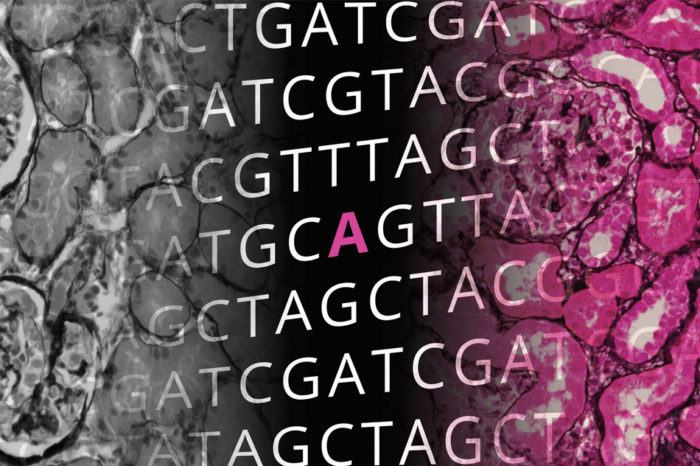Kidney disease gene panel nears implementation
A new diagnostic panel developed at Washington University School of Medicine identifies genetic changes related to inherited kidney disorders

Many kidney disorders are difficult to diagnose. To address this problem, clinical pathologists and clinicians have developed a diagnostic gene panel that identifies genetic changes linked to inherited kidney disorders. Once implemented in 2015, it will be available nationwide at Washington University School of Medicine’s Genomics and Pathology Services (GPS).
A diagnostic odyssey
“For many kidney diseases, it can be a diagnostic odyssey, where you sequence one gene after another over a long period of time,” says GPS chief medical officer and Washington University pathologist Jonathan Heusel, MD, PhD. “For diseases with a manageable number of genes that could be causative, it makes more sense to screen them all at once with a panel.”
To fill this diagnostic need, the GPS team developed the panel with kidney disease specialists, identifying genes of interest from a comprehensive Washington University study of genes related to inherited kidney disorders. The panel employs next-generation sequencing technology to decode genes associated with kidney disease. Using software developed at Washington University, clinical genomics specialists analyze and interpret the observed genetic alterations to identify disease-related genetic changes, or variants. They then must determine whether a given variant poses clinical risks based on the available medical knowledge.
“The variants have to be evaluated on a case-by-case basis, which can be time consuming and labor intensive,” says Heusel.
Once the panel is available, GPS will work to keep it up-to-date. “We stay abreast of the literature, and as new genes became clinically meaningful, we will incorporate those into the panel,” says Catherine Cottrell, PhD, medial director for GPS.
The kidney panel tests for:
- Alport Syndrome, which is characterized by hearing loss and leads to kidney blood vessel damage
- Nephrotic Syndrome, which includes symptoms such as protein in the urine, low blood protein levels, high levels of cholesterol and triglycerides, and swelling
- Metabolic disorders such as diabetes, amyloidosis, Fanconi syndrome and others
- Complement defects related to kidney disease
- Cystic disease, characterized by cysts that appear in one or both kidneys
The process
- Physicians contact GPS to prescribe the test for patients with kidney diseases that they suspect have a genetic cause.
- GPS assists with insurance preauthorization.
- Patients submit a blood sample.
- GPS analyses the sample.
- Physicians receive a report within four to six weeks outlining which gene variants are present.
GPS recommends that physicians make genetic counseling available to patients to help them understand and manage their diagnoses and any health implications for family members.
For more information, contact GPS by phone at 314-747-7337 (toll-free 866-450-7697), email at gps@wustl.edu, or on the Web at gps.wustl.edu.







